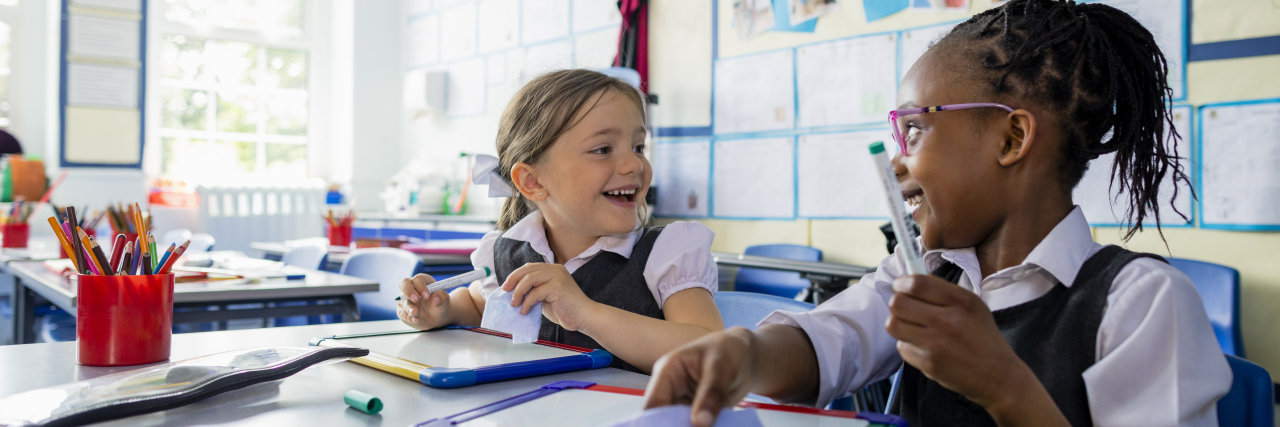Hey Educators, Let's Stop Comparing Our Students' Disabilities
I’ve been working in special education for almost 10 years, and one of the things that frustrate me the most is when I hear teachers compare their student’s abilities to that of other students.
I was once a student with a disability in the education system. Growing up, I always had trouble in school. I had a congenital heart defect, and because my disability wasn’t visible, I was always pushed to do things my body couldn’t do. One of the areas was in P.E. I was often told I had to run a mile but I physically couldn’t do it. When I said I couldn’t, I was seen as defiant, and my dad would be in the office fighting with the administration the next day.
I switched schools constantly because of teachers pushing me beyond my physical limitations, and I was soon seen as a kid who just exaggerated things and had overprotective parents. When I got into middle school my undiagnosed autism started to become more of an issue. Where I once was an A student, my grades started falling, and I was seen as a gifted student that was just “lazy.”
Society has been conditioned to compare. We often hear things like, “That person has it so much worse, so why don’t you try harder.” “If they can do it, then you have no excuse.” This thinking is deeply rooted in ableist ideas and inspiration porn. One of the things I try to remind educators when they see a student who seems like they are being lazy, not doing work, or distracted, is that we aren’t in their body or their mind. We are complex creatures and disabilities present differently in everyone.
Many disabled students have multiple disabilities, chronic illnesses, and/or mental illnesses. These comorbidities can dramatically affect a student’s primary disability. One person with ADHD, autism, cerebral palsy, Down syndrome, lupus, anxiety disorder, etc. isn’t the same as another. Learning how your specific disabled student functions and thrives with their disability is the path to their success.
I’ve seen a lot of educators get frustrated with a student when they compare them to someone who they deem as needing high support or who they think has it rougher than others. These assumptions are often based on the awkwardness of a student, their social interactions, how they communicate, or their physical limitations. They see these kids and determine that if they can get good grades and be a good student, then a student who might have a similar diagnosis and isn’t doing work must mean they are lazy or could do more if they only tried.
For students who have an invisible illness, people might have less empathy towards them in comparison to other students who have a visible disability, or whose disability presents in a way that is more obvious. We think of those kids who are constantly going to the nurse as engaging in task avoidance instead of trying to understand how a disability might cause a child to go to the nurse’s office more frequently.
Shifting our educators’ focus from comparison to acceptance, understanding, and education on how disabilities present differently in each person can really help our disabled students succeed. Just because one person can do a task a specific way does not mean another can do the same. Disabled students deserve an understanding of how their disability affects how they learn. Educators, stop comparing students’ disabilities and start educating yourself on ways to help our disabled students thrive.
Getty image by SolStock.

